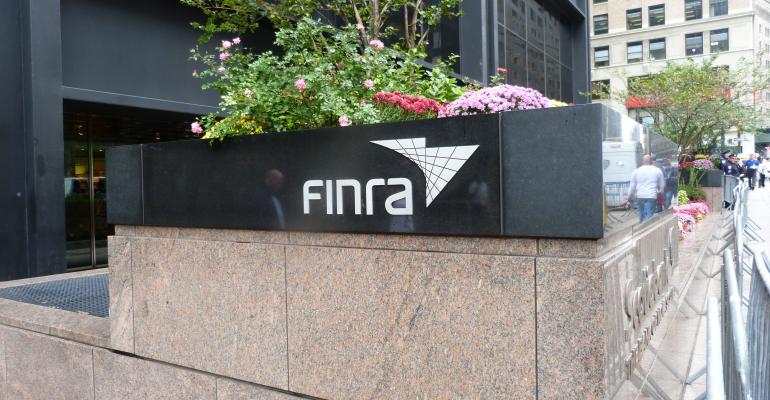A Florida-based brokerage firm has settled charges with the Financial Industry Regulatory Authority for failing to supervise one of its registered reps who inappropriately recommended short-term investments in mutual fund share classes.
In a letter of acceptance, waiver and consent detailing the settlement, Kovack Securities did not admit nor deny the findings, but agreed to a censure and a $210,000 fine for allegedly failing to spot the red flags.
According to FINRA, the settlement with Kovack stemmed from an enforcement review of “unsuitable mutual fund trading” by the rep at a separate firm. The document identifies the rep as “MK.” According to FINRA, MK joined Kovack Securities in 2015 after being fired from his previous firm for “accepting blank, signed forms from customers in violation of firm policy, short term trading in mutual funds and other customer account trading activity under firm review.”
The recommendations in question involve Class A mutual fund shares, which often include upfront sales charges called “front-end loads.” Typically, the funds make sense for an investor to hold long term for several years, so the investor can settle the front-end load expense and generate a profit. Frequently making short-term purchases of the shares can result in transaction costs and higher commissions, making them potentially unsuitable for customers.
But after he joined in 2015, MK began short-term trading for Class A mutual fund shares in the accounts of eight customers, including five seniors.
“In total, MK recommended over $2.1 million in A share mutual fund purchases to the eight Kovack customers after previously recommending sales to the same customers in the prior year,” the order read. “This activity caused the customers to incur unnecessary sales charges.”
This conduct continued until May 2017, when MK was barred from the industry by FINRA for failing to cooperate in its investigation into his conduct. Though Kovack Securities made restitution to customers, FINRA nonetheless argued the firm’s supervisory system wasn’t equipped to catch MK’s recommendations. According to FINRA, the firm mainly relied on a single person to conduct daily reviews in all its trading by its reps, which totaled more than 300 at the time.
“Such daily reviews were not reasonably designed to identify short-term mutual fund switches, which had purchases and sales months apart,” the order read. “KSI did not provide the trade reviewer with support staff to assist with manual trade reviews, or automated exception reports that could assist with a review for mutual fund switches.”
The agency also faulted Kovack for failing to spot other red flags in MK’s alleged actions and backgrounds. Though he’d been terminated by his previous firm partially for alleged short-term mutual fund trading, Kovack Securities didn’t put “heightened supervision” on MK or his trading activity into place, FINRA noted.
Additionally, in November 2016 the trade reviewer did find evidence of a short-term trade MK made, but while the firm canceled the trade, it didn’t conduct a further review of MK’s trading activity, meaning he was able to make “additional unsuitable switches” in the following months.
Donald Cutler, a spokesman for Kovack Securities, said the firm was “pleased” to put the matter behind them after settling with regulators.
“We expect our financial advisors to conduct themselves according to the highest professional and ethical standards,” he said. “The advisor in question was terminated in 2017 and subsequently barred from the industry. Upon being alerted, the firm made full voluntary restitution to the eight affected customer accounts.
Kovack Securities is also embroiled in a separate case being argued in the 11th U.S. Circuit Court of Appeals in Georgia. In Loving, et al v. Kovack Securities, several investors who’d previously won a multi-million-dollar FINRA arbitration award against the now-defunct Resources Horizon Group (RHG) sued Kovack Securities, alleging executives from the two firms struck a deal leading most of RHG’s reps and accounts to join Kovack, without the firm paying anything for them.
The plaintiffs argue Kovack should pay the remainder of the award, with investor advocates arguing their conduct serves as a “road map” for firms to avoid fully paying arbitration awards, but Kovack and its supporters (including the Financial Services Institute) warned of a “chilling effect” that could occur should a brokerage firm be on the hook to pay awards against insolvent b/ds if they accept their reps and clients.





